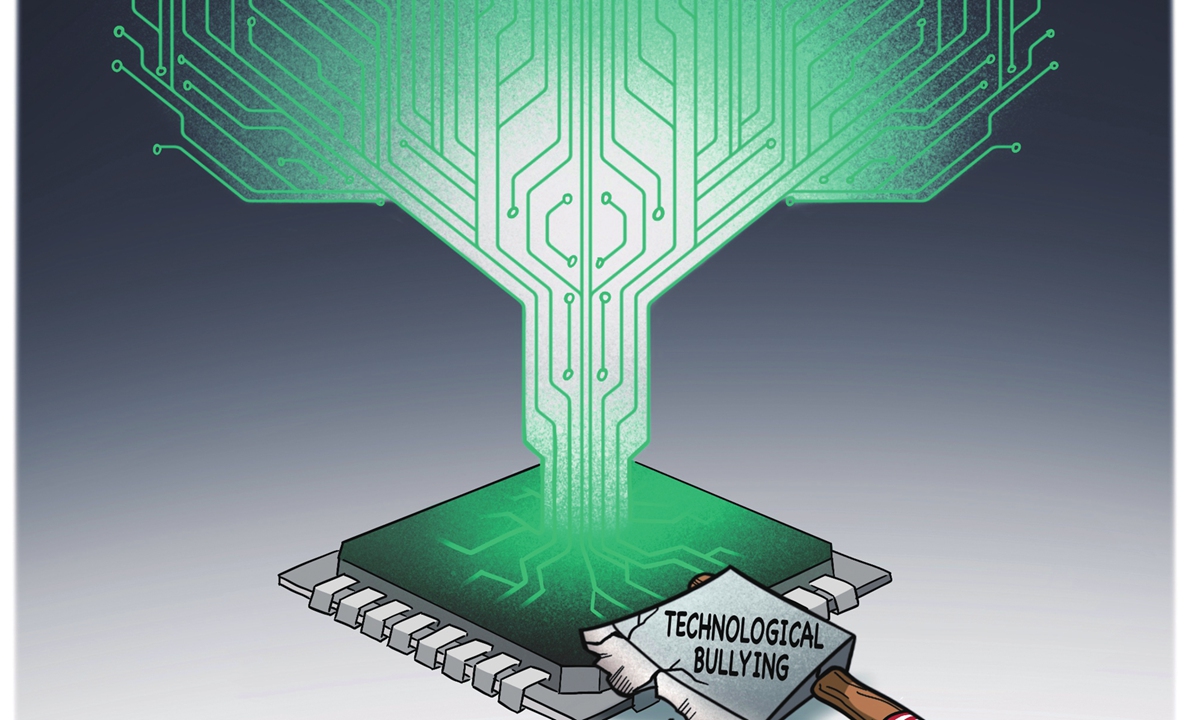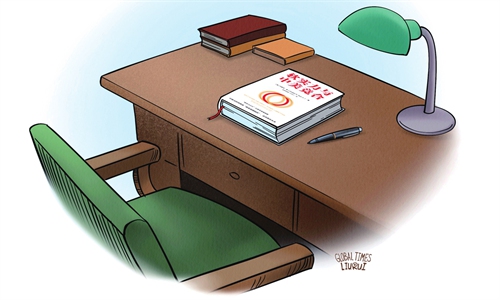
Illustration: Liu Rui/GT
The US is overreaching, acting as if it were the "global chip police," trying to regulate everything under the sun - all to contain China - while its bravado only reveals an underlying fragility.
Recently, the US Department of Commerce subtly altered the wording of a key rule in its high-profile "guidance" on strengthening chip-related export controls. The statement that the use of Huawei's Ascend AI chips anywhere in the world violates US export controls was changed to "alert industry to the risks of using PRC advanced computing ICs, including specific Huawei Ascend chips."
Nonetheless, this change does not conceal the US true intention: Washington arrogantly attempts to influence and dictate how global businesses use Chinese chips. This represents a blatant case of extraterritorial jurisdiction - overstepping legal boundaries and disregarding international norms. Regardless of how the language is framed, the essence remains unchanged: It's a form of tech bullying aimed at forcibly severing normal technological cooperation with China.
"This kind of restriction is meaningless. Huawei chips are already in short supply domestically, and given the growing global demand, a few US regulatory lines are essentially ineffective," said Lü Xiang, a research fellow at the Chinese Academy of Social Sciences. "The revision is also a strategy for the US to create room for maneuvering. It's a tactic: first establish an aggressive stance with harsh conditions, then slightly relax it to make the original unreasonable demands seem more acceptable," Lü added.
Hyping the so-called "risks" associated with Huawei's Ascend chips are merely a reflection of US anxiety: The US Commerce Department's so-called "guidance" in fact lacks solid legal reasoning and is rooted in fear of losing American dominance. However, Washington should seriously consider: Will its obsession with export controls and long-arm jurisdiction truly contain China's rise?
As China's Ministry of Commerce recently responded: "Tripping others won't make you run faster." The unilateral protectionist attempts to contain or isolate other countries will ultimately backfire and weaken the US own industrial competitiveness.
For decades, the US stood atop the global tech stage, confidently shaping the rules, technologies, and future. But today, it increasingly depends on restrictions - not innovation - to preserve its so-called "advantage." It's like a marathon frontrunner who, seeing others catching up, starts scattering nails on the track and declares, "You're not allowed to pass me."
However, the US' blockade has never halted China's technological progress. On the contrary, it has accelerated China's drive for indigenous innovation. Facing US crackdown, China's position is clear: "China firmly opposes such unilateral bullying." China's breakthroughs in key technological fields have been spurred by external pressure.
America's technological bullying exposes the weak nature of its hegemonic mind-set. History has proven that those countries obsessed with hegemony will ultimately discover that blocking others will only leave themselves with no way forward. A country that relies on "drawing circles to exclude others" is impossible to win the future.
The US should face China's rise with a spirit of equality, openness, and cooperation, not with empty rhetoric about "rules" while stealthily revising wording to conceal its abuse of long-arm jurisdiction. Ultimately, this isn't about Huawei, nor just about chips - it's about how an aging hegemon grapples with decline, and whether it is willing to embrace a win-win future brought about by cooperation.



